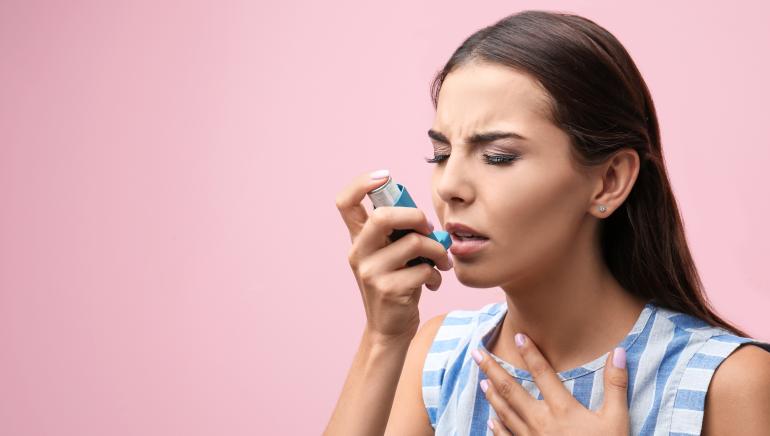
Atopic Dermatitis (AD) is a chronic disorder that can have a diverse clinical course. It is a common, often persistent skin disease that affects a significant percentage of the world’s population. It is a special type of allergic hypersensitivity that is associated with asthma, inhalant allergies (hay fever), and chronic dermatitis.
It is amongst the most common types of skin conditions that is characterized by redness and itching of the skin. It can lead to inflammation that can occur throughout the body, on arms, back of neck, and legs.

Seasonal allergies, exposure to harsh soaps and detergents, and cold weather can be some probable factors. It can also be triggered by pollution and lack of humidity in the air. It starts with itching and redness, and then progresses to a rash that might bleed and secrete fluid on scratching. The itching can be so severe that it can impact daily functions like sleep and lack of concentration. Atopic Dermatitis is among the most burdensome skin diseases of the world and about 10-15 percent of the population in India has some form of it.
Atopic dermatitis can occur at any age. Most often it affects infants and young children. Occasionally, it may persist into adulthood or may rarely appear at that time. Some patients tend to have a protracted course with difficulties. In most cases, there are periods of time when the disease is worse, called exacerbations or flares, which are followed by periods when the skin improves or clears up entirely, called remissions. Many children with atopic dermatitis enter a permanent remission of the disease when they get older, although their skin may remain dry and easily irritated.
This condition manifests differently in different individuals. For some patients, the disease is more sporadic or seasonal, while others can have a more chronic persistent course. In half of the cases, it exists alongside asthma and hay fever. So, individuals with a family history of these diseases are more likely to suffer from AD. In most cases AD is hereditary, and it is a non-contagious disease.

The multiple changes in older people with a weak immune system can lead to a decreased ability to defend against pathogens, which would make older adults more vulnerable to severe and chronic infections. Seniors with AD tend to be more allergic to pollen and dust mites, and they are often hypersensitive to fragrance mixes and metals, such as nickel and cobalt. The skin barrier reduces with growing age which can worsen AD since aging skin has a harder time repairing itself compared to younger skin.
However, currently there is no cure for it, but there are few treatment options that can help a person manage the symptoms of atopic dermatitis. Medicated creams or oral medication to hydrate the skin can help reduce itching and relieve inflammation. Wet-wrap therapy can help improve Atopic Dermatitis symptoms by increasing the moisture of a person’s skin. People with a severe case of this condition may also benefit from ultraviolet (UV) light therapy. It is found that 70 percent of people with the condition see an improvement in their symptoms after undergoing photo-therapy. The UVB helps reduce itchiness and inflammation, and it encourages the body to create vitamin D. It may also help the skin fight bacteria to prevent infection.
Also Read: Eczema could be linked to poorly regulated sex hormones. Itching to know more?

Certain general measures can also help relieve the symptoms of atopic dermatitis like using natural moisturizers, for example coconut and sunflower oil help lock in moisture and relieve itchiness. Bathing every day is essential for Atopic Dermatitis as it helps keep the skin hydrated and prevents infection. One can adopt various methods of skincare to help reduce the symptoms of the condition. Avoid wool, which can irritate the skin, avoid strong soaps and detergents and products that contain scents, dyes, or fragrances and avoiding scrubbing dry skin for too long.
Select Topics of your interest and let us customize your feed.
PERSONALISE NOW